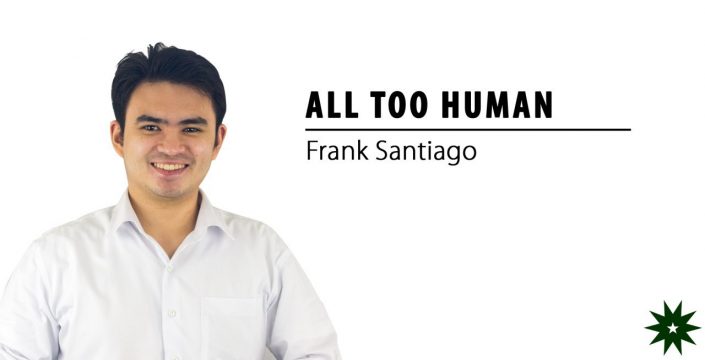Something unusual happened online recently, which caught my—and the rest of the student body’s—attention. The sister of one of the candidates for an Executive Board position called out her sibling’s opponent for allegedly spreading false allegations of corruption. Her brother was lending pens to voters heading for the booth. During this time, the other candidate allegedly shouted that his competitor stole P40,000 from the bazaar to purchase those pens. Or so the story goes.
Things went from bad to worse when the accused himself partook in the online discussion. Responding in the comments of the post, he maintained that no such incident occurred and countered that the candidate’s sister, too, was spreading false allegations.
His version of the event went like this: while accompanying his friend to the voting booth, they were ambushed by the opposing candidate offering them a pen. In a moment where “tensions were getting high”, he brushed off the offer and remarked that there was no need to hand out pens since the DLSU Commission on Elections (Comelec) had already set aside P40,000 to shoulder expenses for the election, which covered the need for pens.
Yes, candidates, in the middle of the voting period, fought not over policies and not over platforms.
They fought over a pen.
We cannot say for certain what really happened that day based on the post alone. But what we can say is that, in any way we put it, both parties should have known better than to bring the problem to the rest of the students.
It is disheartening to see student leaders—along with their siblings—air out their problems online as they had, especially over something as trivial as a pen. While it is always alarming to hear candidates accuse their opponents of corruption, choosing to broadcast it on social media does little to solve the issue.
Instead, it only further spreads unverifiable accusations—which the post hoped to prevent—that can have a personal impact on the accuser and the accused. It also reinforces the idea that it is acceptable to persuade a large number of people to empathize with one party and force the other to apologize and admit his mistakes, or face backlash for not doing so.
That is not to say that using social media to raise concerns is wrong. Sometimes, it is only through these platforms that lesser known issues are heard and addressed. But student leaders should be more formal in their approach, as how they deal with minor problems paints a picture of how they deal with even larger issues, which undoubtedly their future job would entail.
I do not mean to defend the actions of either of the two parties. In fact, I believe that both were in the wrong, regardless of who was telling the truth, simply because neither followed proper procedure.
So how does one, then, respond to such a situation?
Proper channels exist, something one of them even acknowledged, saying that the matter should have been raised to Comelec instead. It is uncertain, as of press time, whether this route was taken and what decision was reached by the commission.
They, too, could have taken down the post, moved the discussion offline, and issued a formal statement that settles the matter. Yet, the post is still there for everyone to see.
We always hold our leaders to a higher standard. If we did not, then candidates would not trouble themselves with building credentials and gaining valuable experience. During the Miting De Avance, one of the candidates bared his plans to introduce technological advancements to his office, citing best practices he saw being done outside the University. His opponent, with equal charisma, emphasized that his years of experience under the office compliments his unwavering passion to serve the students.
Having good platforms and credentials are fine, but they must keep in mind that as elected officers, their actions extend beyond what is written on paper. Having integrity and being level-headed in the face of adversity arguably play a more important role in defining them as leaders.
Great student leaders fight for issues that matter. Candidates fighting over a pen hardly matters, nor does it make them great leaders.

